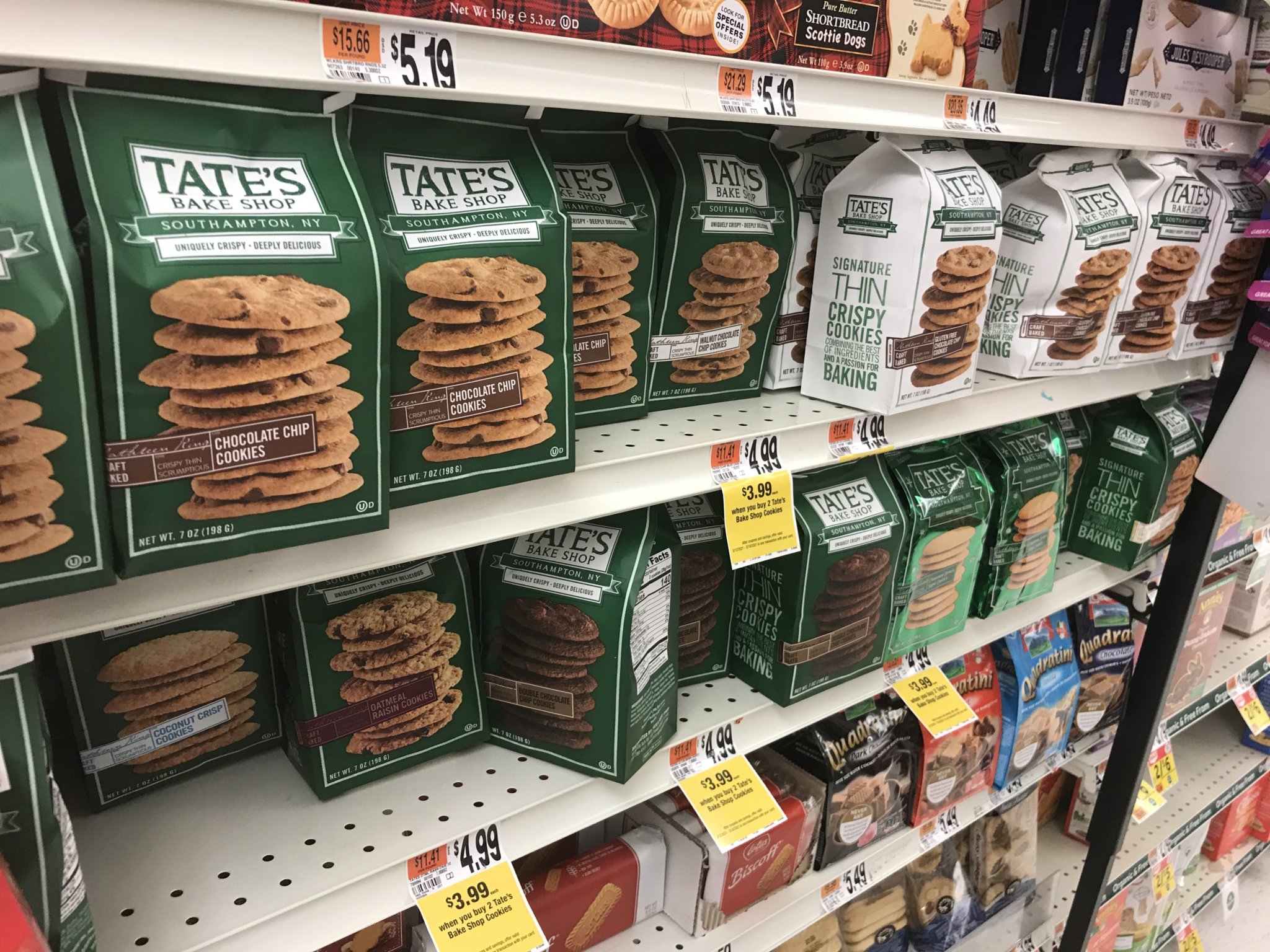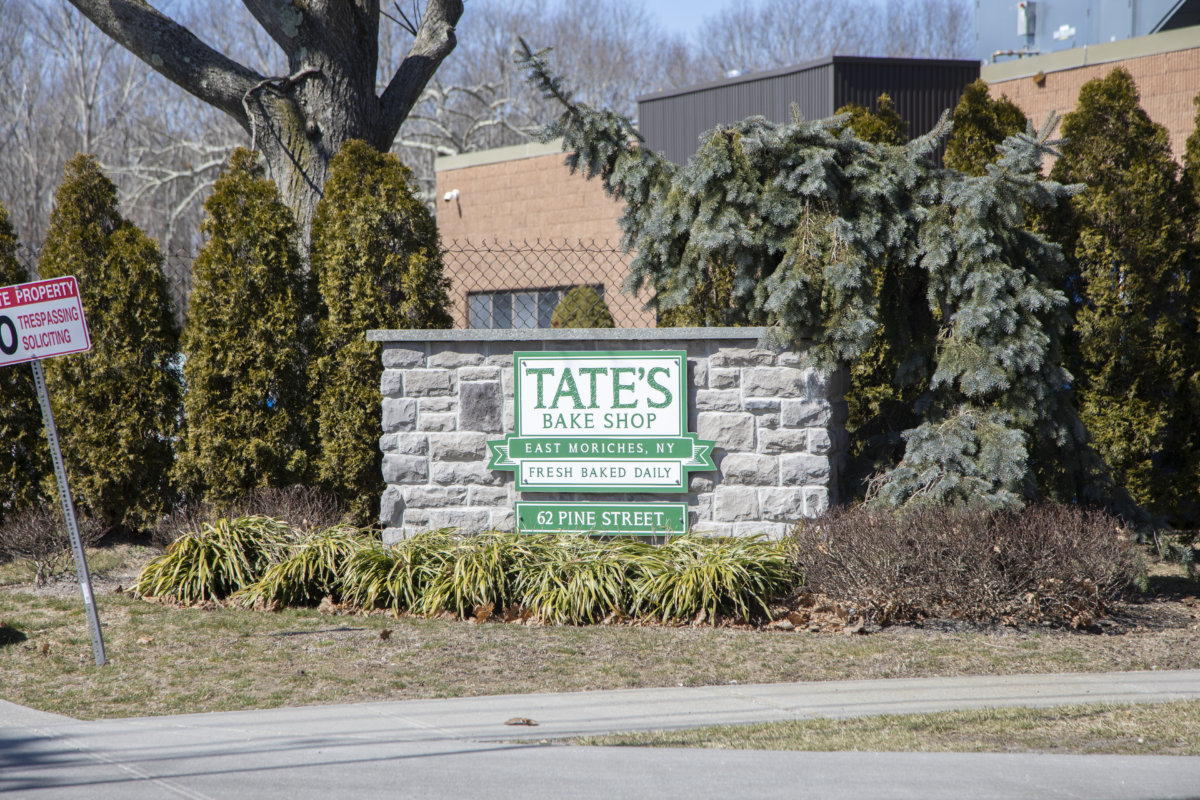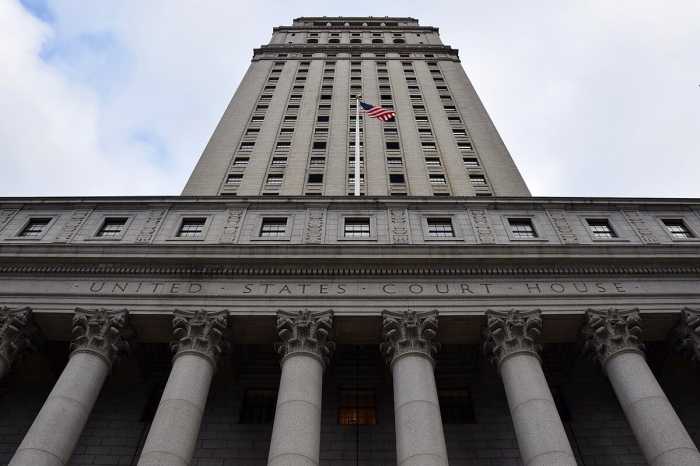Southampton-based Tate’s Bake Shop, a household name thanks to its crispy cookies sold nationwide, saw its sweet success story sour following allegations that it intimidated undocumented workers seeking to unionize by saying they could be deported if they did so.
The company’s nearly 500 East Moriches-based factory workers, who make 1.5 million cookies daily—enough for every Suffolk County resident to eat one per day—raised concerns about working conditions during the first peak of the coronavirus pandemic in spring 2020. So they reached out over the summer to union leaders, who led a campaign to organize the employees. But before the National Labor Relations Board (NLRB) mailed eligible workers their ballots on March 26, accusations surfaced that the company is trying to intimidate employees from joining Amalgamated Local 298.
“Telling employees that they will be deported if they vote for a union is scary,” a worker who did not want to give his name told the Press’ Spanish-language sister publication, Noticia Long Island. “We hope that the vote can take place without fear of retaliation.”
The news came amid a growing push to unionize Amazon.com workers in Alabama who began voting by mail in February on whether to become the first group of U.S. Amazon employees to unionize. In response, President Joe Biden has expressed support for the Amazon employees and defended workers’ rights to form unions.
Accusations of violating federal laws prohibiting the intimidation of workers seeking to unionize—let alone suggesting that workers who are members of a marginalized immigrant community could be deported for exercising their rights—stand in stark contrast to the quaint story of Tate’s being founded by Kathleen King, who got her start selling the popular homemade cookies at an East End farmstand in the 1970s. King sold the company for $500 million in 2018 to Illinois-based Mondelēz International, Inc., the parent company of Oreo, Nabisco, Ritz, and other cookie and snack makers, which reported $27 billion in revenue in 2020.

“OLA was made aware at the height of the pandemic… that workers were expected to work in environments that were not fully safeguarded,” says Minerva Perez, executive director of OLA of Eastern Long Island, a nonprofit group that advocates for Hispanic immigrants. “We learned that at one point most of the building was shut down due to COVID but a factory area with 40 or so immigrants was kept going.”
After OLA’s attorney reached out to the company about the concerns, the section was closed, Perez says.
“We are concerned by any alleged threats of deportation made by an employer,” she adds. “While OLA cannot comment on the allegations directly, we can certainly stand by our workforces that are often made up of immigrant labor as they are the bedrock of our economy and communities in so many ways. OLA urges that respect be given to workers everywhere and an end to exploitation and threats wherever they emerge.”
The union has filed a complaint against the company with the NLRB in response to the claims.
“They have the right to vote in free and fair elections without fear of deportation and retaliation from the leadership,” said Joseph Giovinco, secretary-treasurer of Local 298, which is part of the 8,500-member Eastern States Joint Board and its affiliate, the AFL-CIO. “The workforce at Tate’s is approximately 98 percent Hispanic and they are raising a number of issues as we move through the unionization process.”
Besides pandemic safety issues, Giovinco says, employees are concerned about salary issues and benefits.
“Right now, Tate’s employees are working without a contract and without representation,” said Cosmo Lubrano, commercial agent for the Joint Board. “Management has the right to change the rules at any time, fire people at will, and simply ignore the ideas and concerns of the workers. This leaves these minimum-wage employees in a bad situation and they are terrified. We are talking about mostly immigrants who are willing to work for the American Dream like anyone else.”
The issues the union said it would address in contract talks include COVID-safe working conditions, wages, benefits, paid time off, work rules, hierarchical level, and a grievance process to resolve employee issues.
“Our offer to employees is simple and straightforward,” said Lubrano. “Let us represent you in contract negotiations with your chosen coworkers. We will use our expertise and experience to win the best possible deal with Mondelēz, and then each and every employee will have the opportunity to vote. If you don’t think it’s a better deal than the deal you currently have, you can turn it down and we’ll walk away.”
If workers vote to unionize in a secret ballot, the NLRB will require Mondelēz to negotiate a contract in “good faith” and the union has one year to reach an agreement. Joining a union and working under a negotiated contract, usually around three years, will cost employees a little over $1 a day in dues.
“In addition to a contract, the union will be there for them in any problem that arises at work,” says Giovinco, noting that the union has created excellent working relationships between its members and other companies in the manufacturing, airline, hospitality, and healthcare industries.
“Companies have long recognized that an employee who works under a fair and pleasant contract is a happy and productive employee,” adds Lubrano. “Our role is to help companies have better relationships with their workforce and be more profitable. Once workplace issues are resolved, our members operate more efficiently and the turnover rate is lower; they are not unhappy. We would be out of business quickly if our involvement weren’t to the advantage of both management and employees. “
Tate’s issued a statement disputing the claims.
“The allegations being made against Tate’s are categorically false,” the company said through a spokesman. “We support our employees’ rights to decide for themselves if they want to be in a union and we respect their rights to a free and fair election process that is now underway with the [NLRB]. Tate’s holds itself to the highest standards when it comes to treating our employees with the respect they deserve.
“Tate’s has never threatened employees and we never would,” the statement continued. “We are proud to be a company with a long heritage of providing good jobs and competitive pay and benefits to our employees, and we care deeply about them, their families, and their future.”
The employees have until April 21 to vote on whether they want to join the union.
-With additional reporting by Luis García
This story first appeared on DansPapers.com.


































